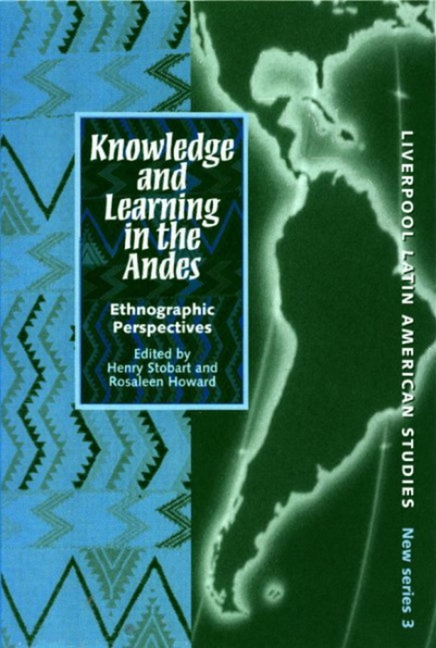Book contents
- Frontmatter
- Contents
- List of illustrations
- List of contributors
- Introduction
- Part I: Multiple Media in the Creation and Transmission of Knowledge
- Part II: Knowledge, Power and Authority
- Part III: Conflicting Paradigms of Knowledge
- 7 Why Nazario is Leaving School: Community Perspectives on Formal Schooling in Rural Bolivia
- 8 Local Knowledge in Health: The Case of Andean Midwifery
- 9 Learning and Re-Learning How to Plant: The Impact of New Crops on the Spread and Control of New Agricultural Knowledge in the Ecuadorian Andes
- Index
8 - Local Knowledge in Health: The Case of Andean Midwifery
from Part III: Conflicting Paradigms of Knowledge
- Frontmatter
- Contents
- List of illustrations
- List of contributors
- Introduction
- Part I: Multiple Media in the Creation and Transmission of Knowledge
- Part II: Knowledge, Power and Authority
- Part III: Conflicting Paradigms of Knowledge
- 7 Why Nazario is Leaving School: Community Perspectives on Formal Schooling in Rural Bolivia
- 8 Local Knowledge in Health: The Case of Andean Midwifery
- 9 Learning and Re-Learning How to Plant: The Impact of New Crops on the Spread and Control of New Agricultural Knowledge in the Ecuadorian Andes
- Index
Summary
Taking local health knowledge seriously
Agriculture and health in development thinking
The term ‘local knowledge’ is one that resonates around much academic and NGO thinking on development. It has been activated under the politics which promote the move towards ‘bottom-up’ development practices, and which criticise the ‘top-down’ nature of much development thinking around science and technology. Yet it is striking to note the extent to which its use is confined to agriculture and farming practices, perhaps more broadly to the field of production, while the field of health and of human reproduction remains dominated by the belief system of Western, ‘scientific’ medicine.
Norman and Ann Long's Battlefields of Knowledge (1992) is perhaps a key text here, one that, through a series of agricultural case studies, demonstrates the agency of subjects who are supposedly the recipients of technological assistance, and the permeability of the knowledge frontier. The authors argue against a dualist distinction between ‘insider’ and ‘outsider’ knowledges, instead proposing that knowledge continually criss-crosses this interface, and is generated dialogically in interactions. They are also opposed to the elaboration of ideal types of ‘traditional’ and ‘modern’ knowledge, stressing the value of looking at variations from types and norms, and at what is often seen as the ‘disorder’ of everyday life from the viewpoint of structural functionalism or of development interventions. This theoretical perspective interacts with a methodology which starts from the lifeworlds of actors, and tries to show how they make sense of particular situations through organisational and discursive practices.
This work builds on the economic anthropology of two previous decades which documented, in the case of the Andes, patterns of land-holding, production and exchange among local peoples, as well as the depth of botanical and ecological knowledge underlying them (Alberti and Mayer [eds.] 1974; Lehmann [ed.] 1982).
- Type
- Chapter
- Information
- Knowledge and Learning in the AndesEthnographic Perspectives, pp. 166 - 193Publisher: Liverpool University PressPrint publication year: 2002



